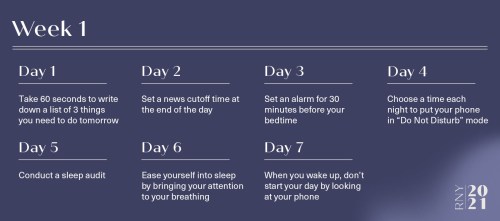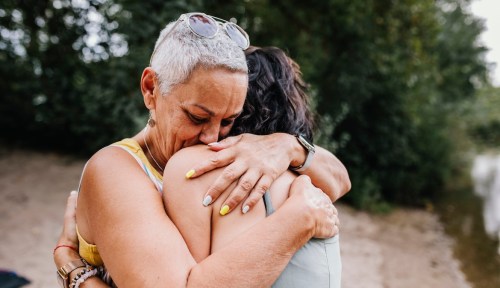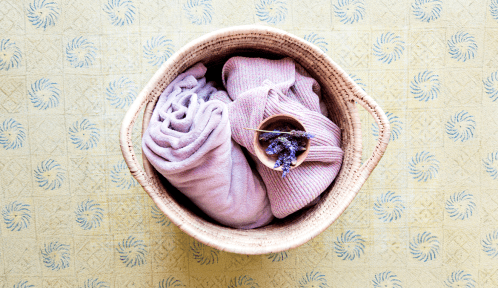Our editors independently select these products. Making a purchase through our links may earn Well+Good a commission
I get asked all the time how much sleep I get. That’s what happens when you write a book called The Sleep Revolution; travel around the world talking about it; and found Thrive Global, a company committed to ending our global burnout crisis. So when the question comes, I’m ready: I reply that 95 percent of the time, I get eight hours per night.
What about the other 5 percent? When I don’t get the sleep I need, I’m more irritable, my mind is cloudy, I’m looking for toothpicks to keep my eyes open, and it’s much harder for me to find the joy in what I’m doing. But the funny-yet-not-funny thing is, that’s how most of my days used to play out before I collapsed from exhaustion in 2007 and overhauled my lifestyle. I would lurch from one cup of coffee to the next in a series of peaks and plunges, just trying to survive until I could climb into bed for another four to five hours of sleep, and then start the cycle again the next day.
That way of living worked—or so my sleep-deprived self thought—until it didn’t. My episode served as a wakeup call that I needed more sleep, and since then, I’ve only become more ruthless about prioritizing it. That’s how I’ve gotten my eight hours of nightly sleep to become my norm.
Study after study shows that sleep impacts our creativity, productivity, and nearly every aspect of our physical and mental health. And getting the right amount of sleep enhances the quality of every minute we spend with our eyes open.
As we look ahead to all the possibilities of 2021, there’s no better time to start getting the sleep we need.
So every week in January, I’ll share my tips for making sleep a priority. At Thrive Global, we call them Microsteps: small, science-backed steps you can start taking immediately to build habits that significantly improve your life. As we look ahead to all the possibilities of 2021, there’s no better time to start getting the sleep we need.
Let’s start with how technology and sleep interact. Our houses, our bedrooms—even our beds—are littered with beeping, vibrating, flashing screens. These devices allow for the never-ending possibility of connecting—with friends, with strangers, with the entire world, with every TV show or movie ever made—with just the press of a button. It’s, not surprisingly, addictive and also mostly negative for our sleep.
Consider this: Research has found that nearly 70 percent of Americans sleep with their phone. Always being in this state of connection doesn’t exactly put us in the right frame of mind to wind down and doze off. But by setting some boundaries with your devices, you can make sure you get the sleep you need—and remember, your phone will be waiting for you in the morning.

Day 1: Take 60 seconds to write down a list of 3 things you need to do tomorrow
Research shows that writing down your key priorities can help you fall asleep faster than reflecting on completed activities or things that already happened. Refer back to your list in the morning and then dive in!
Day 2: Set a news cutoff time at the end of the day
While being informed can help us feel more prepared amid a public health crisis, setting healthy limits to our media consumption can help us have a recharging night’s sleep and put the stressful news into perspective.
Day 3: Set an alarm for 30 minutes before your bedtime
Setting an alarm reminds you that if you’re going to get to bed on time, you need to start wrapping things up.
Day 4: Choose a time each night to put your phone in “Do Not Disturb” mode
Intentionally blocking notifications and calls will help put the day’s demands behind you—and set you up for uninterrupted sleep.
Day 5: Conduct a sleep audit
Spend time identifying where on the spectrum your sleep quality and quantity might fall, and what beliefs, behaviors, and mindsets might be driving your sleep habits. Taking the time to list them out might create new awareness and ideas so that you can implement the Microsteps you need to get better sleep.
Day 6: Ease yourself into sleep by bringing your attention to your breathing
A guided meditation or even a few conscious breaths will help ease your transition to sleep by signaling to your brain that it is time to unwind.
Day 7: When you wake up, don’t start your day by looking at your phone
Instead of scrolling through email or social media, which can lead to negative emotions, take at least one minute to focus on your intention for the day.
Looking to hit refresh on your healthy habits this January? Check out our full 2021 ReNew Year program for expert-led plans for better sleep, nutrition, exercise, and self-care routines.
Sign Up for Our Daily Newsletter
Get all the latest in wellness, trends, food, fitness, beauty, and more delivered right to your inbox.
Got it, you've been added to our email list.











